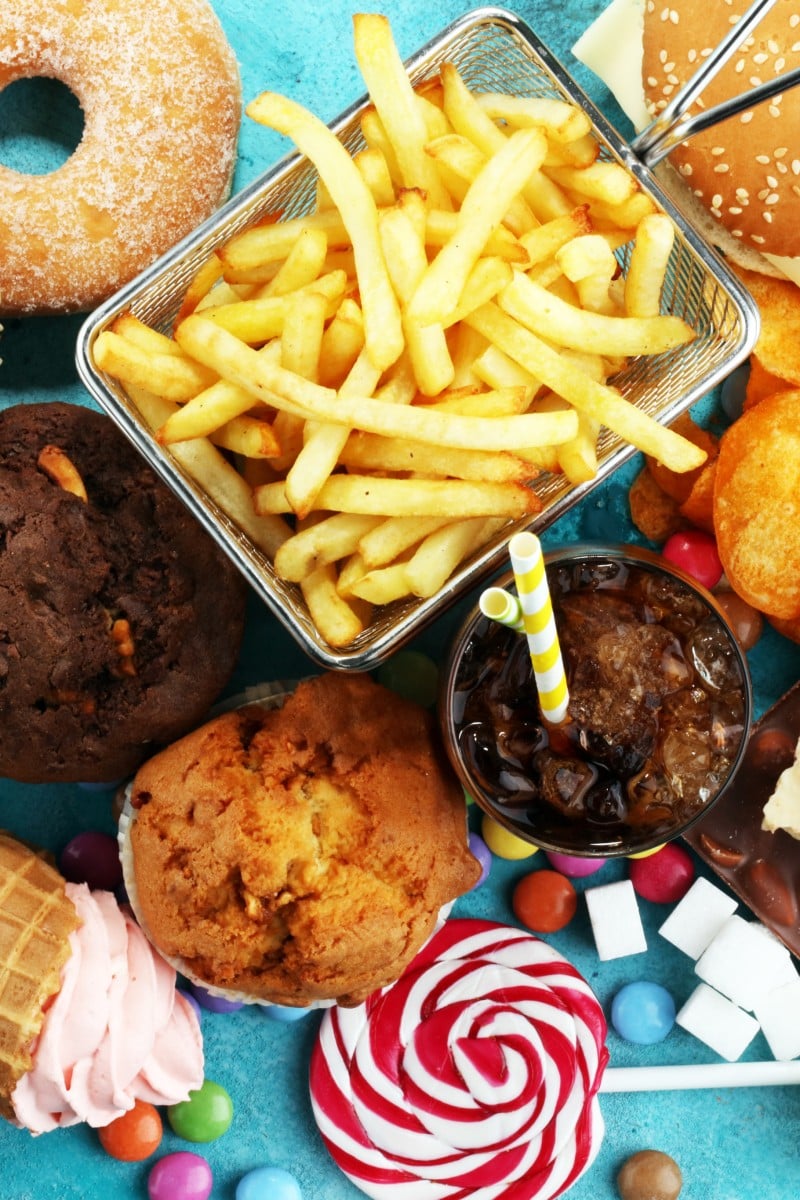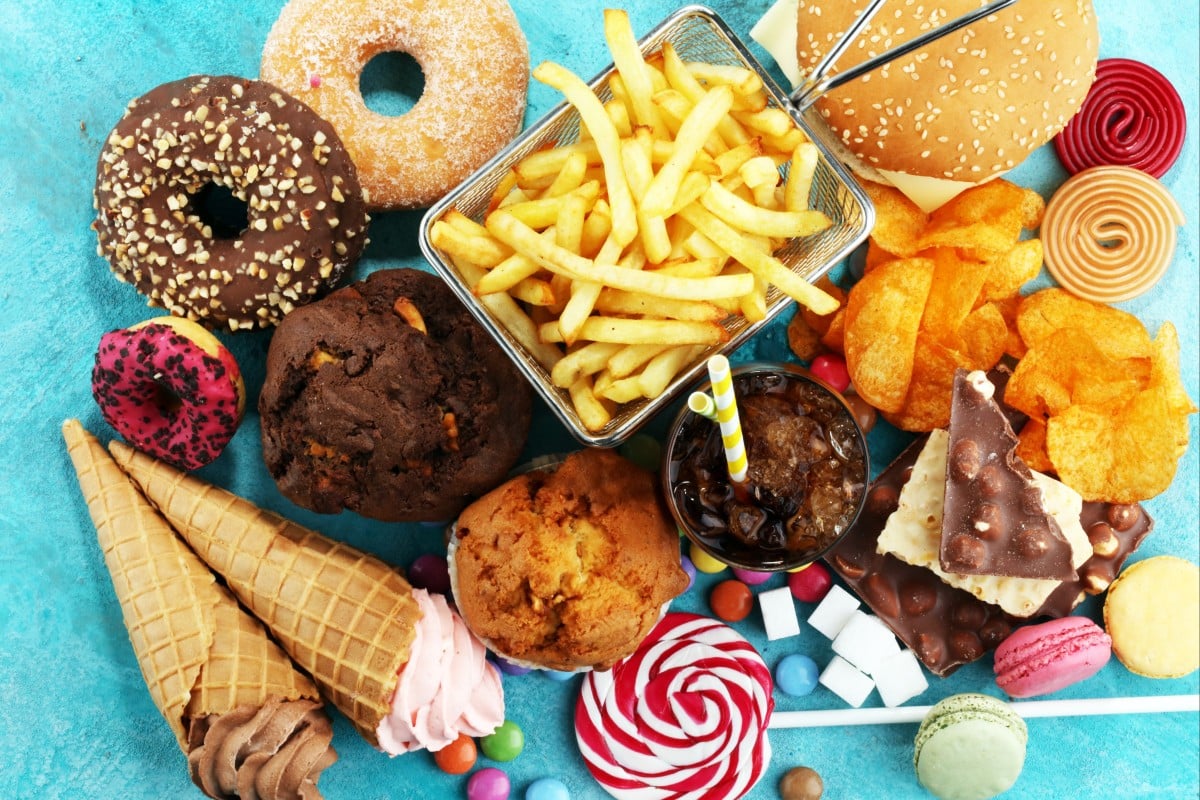
Study Buddy (Challenger): Why do we eat unhealthy foods? Psychologists say mindfulness can help us eat better
- Physiology of deciding what to eat is complex, but telling yourself that you shouldn’t eat something could be holding you back
- This page is for students who want to take their understanding to the next level with difficult vocabulary and questions to test their inference skills
 The human brain may have evolved to pay more attention to foods that are energy-dense, such as those that are high in fat. Photo: Shutterstock
The human brain may have evolved to pay more attention to foods that are energy-dense, such as those that are high in fat. Photo: ShutterstockContent provided by British Council
Read the following text, and answer questions 1-9 below:
[1] I am lactose intolerant, and I know I should keep an eye on my cholesterol. But neither of these factors stop me from picking at a cheese board or ordering ice cream for dessert. While I am eating, I am aware that my choices are not beneficial. I never feel good after, yet I keep repeating the cycle. I often swear that I’ll stop: “No more cheese,” I say to myself, or “I’ll stay away from sugar.” But even with the restraints I put on myself, I still want what I “shouldn’t” have.
[2] When I shared on Twitter about my problems with this decision-making process, several users replied with their own stories about foods they consume despite being better off staying away from them. Zach Honig wrote that even though he knew he was susceptible to gout, he would still indulge in red wine, rich foods and beer. “I just deal with the gout attacks from time to time.”
[3] Why do we keep choosing foods that we shouldn’t? There are a variety of reasons people choose to eat what they eat that depend on the individual, their circumstances, and other factors. There is a spectrum when it comes to healthfulness and food. All foods could fit into a healthy diet, said psychologist and registered dietitian David Creel.
[4] When we choose to eat something, two areas of the brain are stimulated. “We know from people who do brain research that there tend to be two different drivers: liking food when we eat it – our brain responds and we can see that through imaging – and there’s also a ‘wanting’ piece,” Creel said.
[5] If someone is having a craving, that is a “wanting” experience. It is similar to when someone who smokes is asked if they like to smoke. They may not “like” to, but they do crave a cigarette. Certain emotional states may cause you to crave specific foods, too. The “liking” experience comes after eating or experiencing a food. Creel explained that liking and wanting could feed into each other sometimes, but they would happen in different areas of the brain.
[6] The physiology of deciding what to eat is complex. “The reason we consume those things that we shouldn’t ... is typically driven by taste or flavour,” said Charles Spence, a professor of experimental psychology. “It’s hard to resist the temptation of the sugar, or the salt or the fat.” According to Spence, the human brain pays more attention to foods that are energy-dense, with extra attention to those high in fat. He explained we might have evolved to find those foods attractive because they had been essential to survival.
[7] Creel said he would encourage patients to pause to consider their choice – not to see anything as “forbidden” but as two options that could have different outcomes. For example, if we say: “I should have an apple” and “I should not have cake”, we either eat the apple and feel like we missed out on the cake, or eat the cake and feel guilty because we didn’t eat the apple.
[8] But changing “shoulds” to “coulds” gives you freedom while removing guilt, Creel said. So, you could eat an apple you think you will enjoy, or you could enjoy the cake because it’s your favourite. Mindful decisions could also help you avoid less healthy choices, Creel said, and it could enhance your enjoyment of all kinds of foods.
Source: Tribune News Service, September 16
Questions
1. According to the writer in paragraph 1, they ...
A. are suffering from health issues.
B. are aware that the food they eat is not always beneficial.
C. struggle with healthy eating.
D. all of the above
2. In paragraph 2, what does the “decision-making process” refer to?
3. According to paragraph 2, how does the writer know that they are not alone when it comes to choosing unhealthy food?
4. What does this sentence in paragraph 3 most likely mean: “There’s a spectrum when it comes to healthfulness and food”?
A. Eating in moderation is the key to good health.
B. A complete diet consists of nourishing, high-quality food.
C. They are many ways to engage in healthy eating.
D. Everyone has different foods they prefer.
5. Find a word or phrase in paragraphs 4 and 5 that has a similar meaning to each phrase given below. (3 marks)
(i) raise levels of activity
(ii) factors that cause something to happen
(iii) a powerful desire for something
6. What three things make tasty foods tough to stay away from, according to paragraph 6? (3 marks)
7. Explain in your own words the idea of changing “shoulds” to “coulds” mentioned in paragraphs 7 and 8.
8. Decide whether the following statements are True, False, or the information is Not Given in the text. Blacken ONE circle only for each statement. (4 marks)
(i) Many people opt for unhealthy food because of its availability and convenience.
(ii) How we feel at any particular time can result in cravings for certain foods.
(iii) Creel recommends avoiding certain food groups altogether to minimise the temptation of eating unhealthy food.
(iv) Taste and flavour are the least important attributes that influence our food choices.
9. In which section of a food magazine might you find this article?
A. health and nutrition
B. gourmet travel
C. eating out
D. seasonal recipes
Answers
1. D
2. continuing to choose foods that the writer knows do not benefit their health (accept other similar answers)
3. Several Twitter users shared their own stories about foods they should not consume.
4. C
5. (i) stimulated; (ii) drivers; (iii) crave/craving
6. sugar, salt and fat
7. Instead of saying we “should” eat something, we can tell ourselves that we “could” eat it. This change in mindset can lead to healthier choices by giving ourselves freedom to consider the outcomes, while feeling less guilty. (accept other similar answers)
8. (i) NG; (ii) T; (iii) F; (iv) F
9. A
